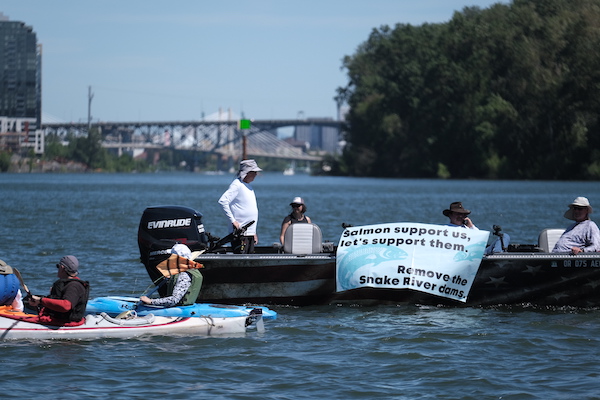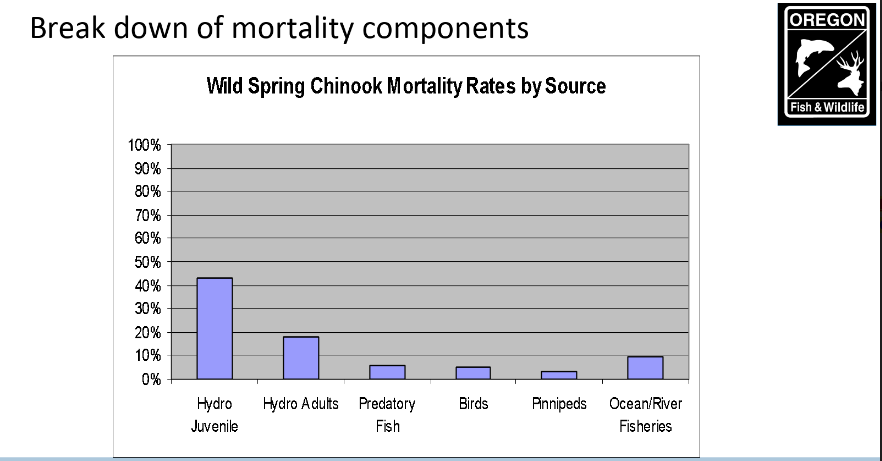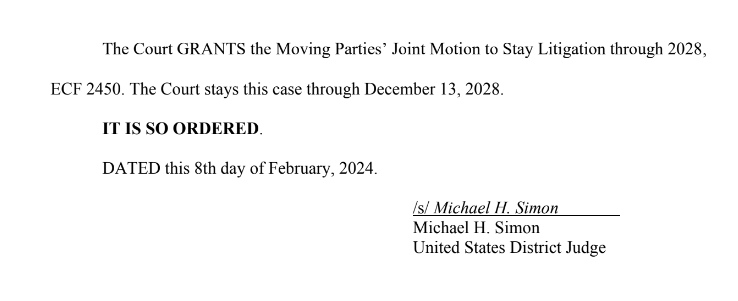
Federal Judge Approves Long-term Stay On Snake River Litigation
The long-term pause on litigation over Snake River dams proposed late last year was approved by a federal judge in Oregon today and that means joint state-tribal plans and US government commitments to Columbia Basin restoration will continue moving ahead.

“The orderly course of justice is best served by staying this litigation,” wrote US District Court Judge Michael H. Simon in Portland in granting the stay requested by the states of Oregon and Washington, four Columbia Basin tribes, a range of fishing-oriented and other organizations and federal defendants in the case.
“The issues in this case are complex and have been litigated for decades. The Moving Parties have reached a consensus to attempt to resolve these issues, perhaps permanently, without the need for further litigation. The Moving Parties will update the Court annually on their progress,” Judge Simon ordered.
The stay is effective through at least December 2028.
It does not mean Washington’s four Snake dams will be breached tomorrow, the next day or even the one afterwards – that still requires an act of Congress – but those who have been advocating for the river’s Endangered Species Act-listed Chinook, steelhead and other stocks for decades applauded the news.

The basic argument around opening up the Snake again from a sportfishing perspective is that the eight dams between Lewiston and Clarkston and Buoy 10 at the mouth of the Columbia represent the single largest source of freshwater mortality for wild Chinook smolts, accounting for over 42 percent of deaths, with all other factors adding up to “such a tiny piece of the overall puzzle,” according to an ODFW official. Springer fisheries up and down the Columbia system are tightly constrained by those wild fish returns, but breaching could boost those significantly.
According to Judge Simon’s order, spilling water over the dams to aid the downstream migration of smolts is among the federal commitments going forward.
Plans also call for figuring out how to replace the services Ice Harbor, Lower Monumental, Little Goose and Lower Granite Dams provide – spring pulses of electricity, up- and downstream barging, some irrigation.
That was a key part of the plan shopped around three winters ago now by Idaho Rep. Mike Simpson (R) and stressed by famed Northwest salmon-steelhead angler Buzz Ramsey as the never-ending battle over hydropower operations in the Columbia Basin ground through court.

The plaintiffs in the case include the Northwest Sportfishing Industry Association, National Wildlife Federation, American Rivers, NW Energy Coalition, Pacific Coast Federation of Fishermen’s Associations, among others and represented by Earthjustice, as well as state of Oregon, Spokane Tribe of Indians and Couer d’Alene Tribe. Defendants include NMFS, the Corps of Engineers, Bureau of Reclamation and USFWS.
Other parties to the case include the so-called “six sovereigns” – the states of Oregon and Washington and Nez Perce, Yakama, Umatilla and Warm Springs Tribes – who came up with the joint plan to restore the Columbia and pause the litigation, and which came as the Biden Administration last fall tasked federal agencies with a whole-of-government approach to prioritizing salmon and steelhead restoration.
Those who opposed today’s stay include Idaho, Public Power Council and the Inland Ports and Navigation Group, which represents a number of grain terminals, grain growers, bargers and others.
